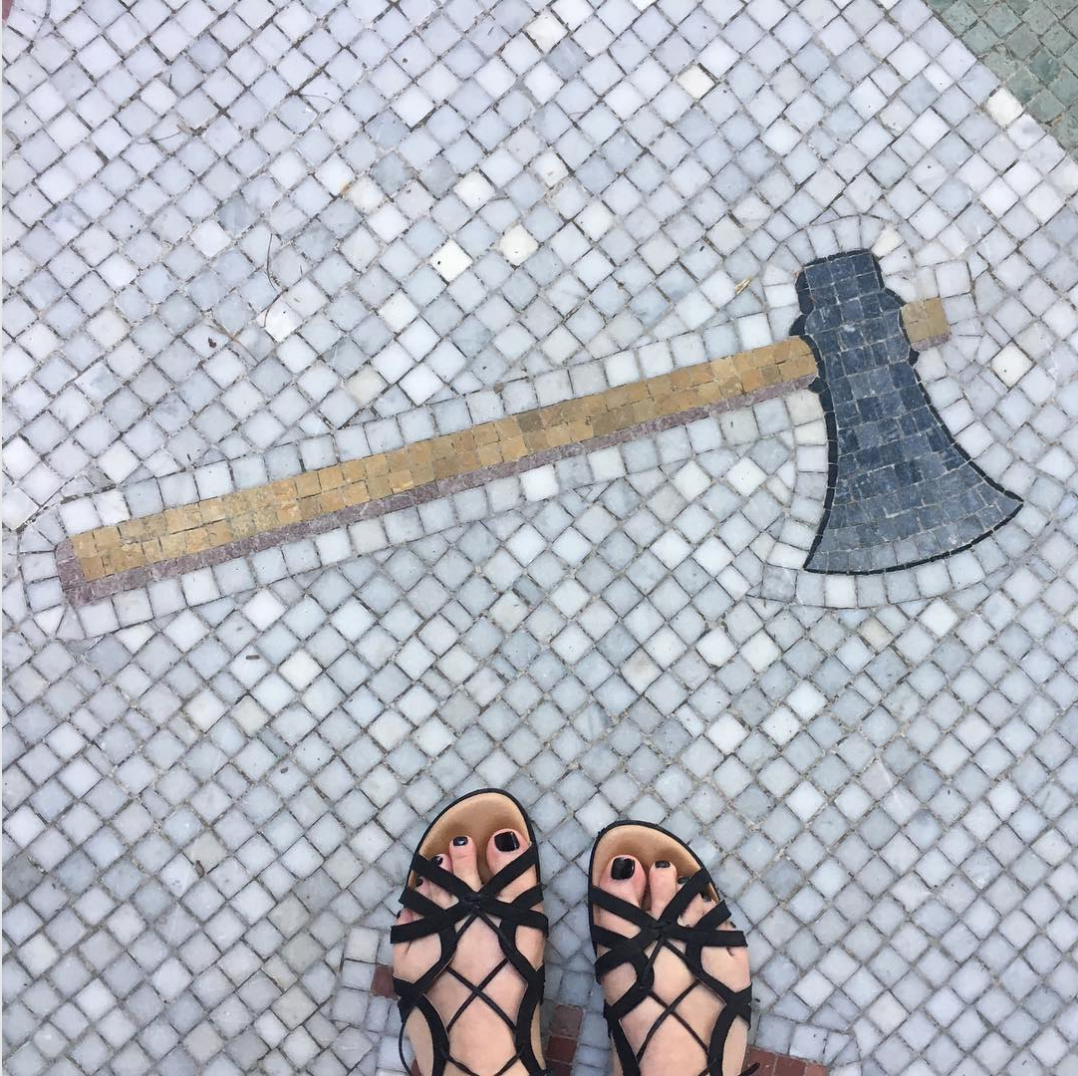
The ways we find to fix ourselves do not always look like fixing. Sometimes they fail, but they are never wrong.
—Melissa Febos
1.
I throw two-handed, fists stacked at the base of the axe handle. My right foot is at the line, my left just behind, and I rock, my weight shifting forward, back, forward, back. This strength is mine. This body, mine. The target: concentric rings painted on 2X10 pine boards and drilled into the wall. It’s fifteen feet in front of me. Fifteen feet is the full rotation of an axe. When I started throwing axes I read articles by physicists about velocity and angle and centrifugal force. I read governing rules from the National Axe Throwing Federation and the World Axe Throwing League including etiquette, scoring, and foot faults. I watched countless instructional videos, the majority featuring dudes in fields, and one where the actor Jason Momoa nails a bullseye while drinking a very large beer.
I watched that last one many times.
Feet still staggered, I bring both hands back over my head. The blade is straight. I’m leaning back. My elbows are at my ears and I’m gripping the handle and everything in me—I don’t know how else to say this—sighs. The knots in my neck untie, brambles in my back untangle. This is what child’s pose used to feel like—the relaxation, the release—but yoga isn’t working for me right now. Neither is bourbon—I’ve been drinking too much—or sleeping—not much at all—or deep breaths or petting dogs or social media breaks or any of a thousand things we do to stay calm, don’t tell me to be calm. I am not fucking calm. I could explode this city with my rage.
I let go of the axe.
Sliced air and the gunshot of steel on board. The blade sinks and sticks in the splintered wood, just to the right of the third ring. That’s okay. I don’t care about points. I’m not here to win. I’m not here to compete in a league or hang out with friends or even hit the target.
I want to split open.
2.
Rage is nothing new. But the policies and rhetoric of our current administration have kicked it screaming into the center of things. There are moments from this time that I will never un-see: children in cages under foil blankets. Hundreds of pairs of shoes left at the Capitol Building in Puerto Rico, belonging to people who died during Hurricane Maria but weren’t counted in the official death pole. A statement by a tiki torch manufacturer saying they didn’t support white supremacists. A child-sized bulletproof backpack in polka dot pink, sold for a...
You have reached your article limit
Sign up for a digital subscription and continue reading all new issues, plus our entire archives, for just $1.50/month.
Already a subscriber? Sign in




